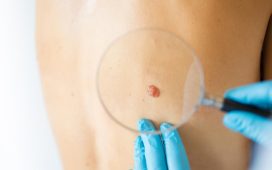Maintaining full doses of chemo especially important early in the treatment course
WEDNESDAY, Sept. 11, 2019 (HealthDay News) — Maintaining full doses of chemotherapy, especially early in the treatment course, is important for survival of intermediate or high-risk breast cancer patients, according to a study published in the August issue of the Journal of the National Comprehensive Cancer Network.
Zachary Veitch, M.D., from the University of Calgary in Canada, and colleagues evaluated the impact of chemotherapy total cumulative dose (TCD), and early (5-fluorouracil/epirubicin/cyclophosphamide) versus late (docetaxel only) dose reductions, on survival outcomes among women with stage I to III, hormone receptor-positive/negative, human epidermal growth factor receptor 2-negative breast cancer treated with adjuvant 5-fluorouracil/epirubicin/cyclophosphamide followed by docetaxel chemotherapy (from 2007 through 2014).
The researchers noted that 1,302 patients were evaluated for dose reductions, with 16 percent being reduced <85 percent (202 patients) versus ≥85 percent (1,100 patients; 84 percent). Compared with patients receiving <85 percent, those who received TCD ≥85 percent had superior five-year disease-free survival (DFS) and overall survival (OS). DFS and OS were significantly lower for patients with dose reduction early in treatment versus late in treatment. Findings were similar in multivariate analyses (hazard ratios, 1.46 and 1.77, respectively). There was no effect on outcomes for dose delays of <14 or ≥14 days and granulocyte colony-stimulating factor.
“Often the first cycle of chemotherapy can be difficult for patients, and oncologists must convey the need for maintaining initial dose intensity, while using other medications to control side effects and manage comorbidities,” Veitch said in a statement.
One author disclosed financial ties to the pharmaceutical industry.
Copyright © 2019 HealthDay. All rights reserved.








